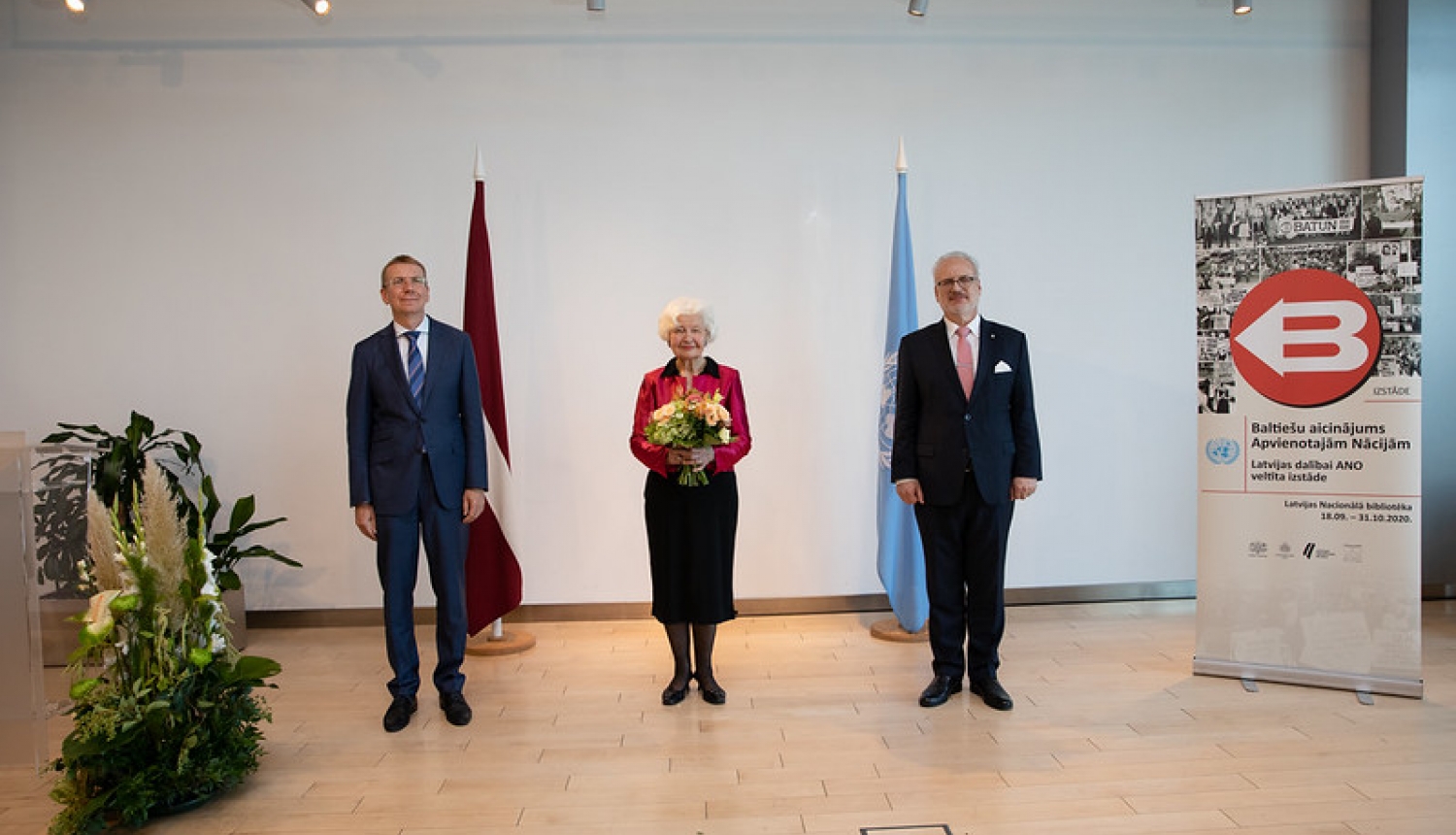To mark the 75th anniversary of the United Nations and the 29th anniversary of Latvia’s accession to the United Nations, an exhibition titled “Baltic Appeal to the United Nations” and jointly produced by Ministry of Foreign Affairs, the Museum of the Occupation of Latvia, the National Archives of Latvia and the Latvian National Library was unveiled on 18 September 2020.
The exposition at the Latvian National Library, alongside detailed information on the activities of BATUN (“Baltic Appeal to the United Nations”), contains original documents from the archive of BATUN, a Baltic exile organisation, that have been put on public display for the first time.
In opening the exhibition, Edgars Rinkēvičs highlighted the contribution by BATUN, during a time when the Baltic States were not yet members of the UN, persistently reminding the UN and allies about the occupation of the Baltic States and advocating their independent statehood.
Edgars Rinkēvičs thanked BATUN’s founders, activists and staff, underlining that the exhibition reflects hopes, ideals and persistence through which BATUN achieved understanding of the Baltic States’ history.
The President of Latvia, Egils Levits, stressed the importance of grass roots diplomacy used by the young Baltic exiles for regaining Latvia’s independence. President Levits said that the exhibition is proof of the ability of Latvians to get organised and work for years on end to achieve great aims. This quality will be useful, he said, since, in 2025, Latvia will stand as a candidate in elections for a two-year term on the UN Security Council as a non-permanent member.
Sharing her recollections of the ambitious and persistent initiatives of the Baltic exile community, the author of the concept of the exhibition, who represented BATUN and participated in its activities for many years, Dzintra Bungs, spoke about the creative approach of the young Baltic exiles, who maintained the “Baltic question” on the international agenda.
BATUN was one of the most influential Baltic exile organisations, which sustained Baltic aspirations for freedom during a 25-year period – from the 1960s to the restoration of independence of the Baltic States in 1991 – by reminding UN members of the occupation of the Baltic States and their rights to self-determination.
BATUN was founded on 9 February 1966. The impetus came from about Baltic activists who staged a Baltic Freedom Rally in New York on 13 November 1965, when an estimated 15,000 North Americans of Baltic descent, mostly young people, marched to the United Nations Headquarters with posters demanding independence for the Baltic States.
BATUN operated as a non-profit organisation that covered its costs from donations. When Estonia, Latvia and Lithuania regained independence and joined the UN in 1991, BATUN could look back at what they had accomplished and help the Baltic States delegations successfully launch activities in the complicated UN system.
The BATUN archive is a collection of unique documents accumulated and compiled in New York over a period of 50 years, and then brought to Latvia with the aim of introducing the general public and researchers to the historical contribution of BATUN to advocating, before the UN in New York and Geneva, the rights of states under international law, and conditions in the occupied Baltic States.
The exhibition, “Baltic Appeal to the United Nations”, is part of a series of events dedicated to the 75th anniversary of the United Nations, namely, research, educational, and informational activities related to the UN system and Latvia’s UN membership. The exhibition will be on display at the Latvian National Library’s orangerie until 31 October.




